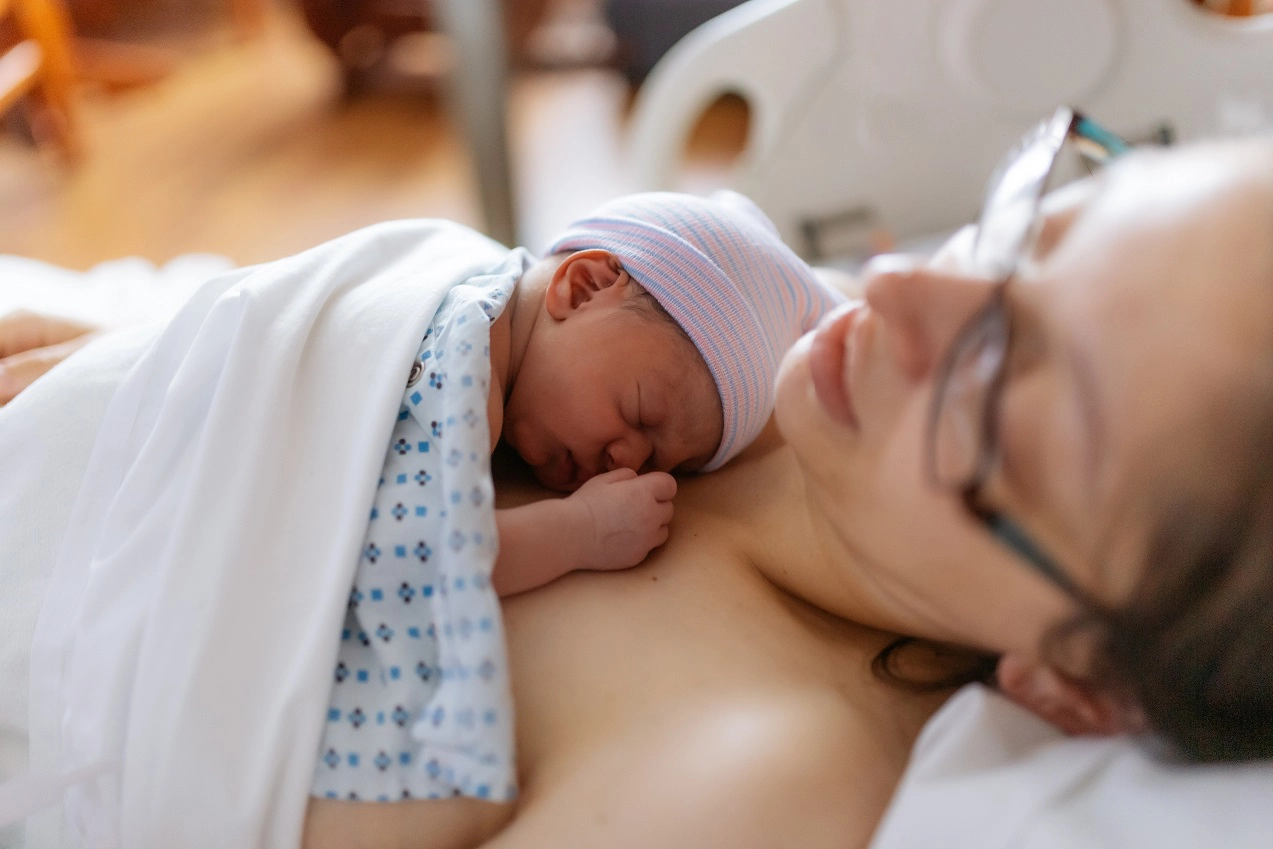FamiBlog
Bleeding after a C-section
Many women mistakenly believe that there is no bleeding after a caesarean section - unlike a natural birth. Just like after a natural birth, the lining of the uterus has to regenerate after an operation. How long does it take for bleeding to start after a C-section?

28 August 2023
Bleeding after a C-section - why does it occur?
Bleeding after birth is due to the need to regenerate the lining of the uterus. This is because during pregnancy the placenta is implanted there, which detaches after birth, either in the third stage of labour or after the baby has been pulled out while it is being aborted, leaving a kind of "wound". The placenta has to heal, which manifests itself in the form of postpartum discharges. Initially it is bleeding, but over time the nature of the secretions changes. Regardless of the type of birth, the uterine cavity needs to be cleaned and regenerated during the postpartum period.
Bleeding after a C-section - how long does it last?
Postpartum excretions can occur up to 4-6 weeks after birth. In many cases this passes after about 2 weeks, but this is an individual matter. It is important to be aware of how their character changes over time. Initially they are bloody, then the discharge first becomes brown, then yellow and finally colourless/grey.
Bleeding after a C-section - when should it be a cause for concern?
Bleeding after a C-section should subside in the course of the day. Heavy bleeding is always worrying and requires a visit to the doctor. It may be due to incomplete detachment of the placenta and the membranes remaining in the uterine cavity. This may require an intervention in the form of a curettage in hospital. A sudden change in the nature of the discharge should also be a cause for concern, for example if it has become pale and there is sudden heavy bleeding, or if the smell of the discharge has changed. This may be related to an infection, for example. In such a situation, a visit to the attending physician or the gynaecological-gastroenterological emergency room is also necessary.
Bleeding after a C-section - postpartum hygiene
The time after birth requires special care in hygiene. In the case of a caesarean section, the wound must be cared for after the operation, whereas after a natural birth, a possible wound after the perineum has been sutured must be cared for. It is very important that women refrain from baths and swimming pools for 6-8 weeks. Sexual intercourse is also discouraged. Suture wounds should be washed with soap and water and dried with a disposable towel. Do not use body sponges as they are a source of microorganisms. Tampons should not be used for bleeding after a C-section, but pads should be changed often enough to prevent the growth of bacteria.
Sie interessieren sich auch für:
Intimate infections during pregnancy
Many expectant mothers struggle with the annoying symptoms of intimate infections during...
Sore throat during pregnancy
A sore throat is a relatively common condition that also affects pregnant women. However, not all...
Eating raw meat during pregnancy
During pregnancy, the expectant mother has many desires. But not all of them can be freely...
Stem cells and cord blood
Bone marrow was the primary source of stem cells (bone marrow transplantation involves...































